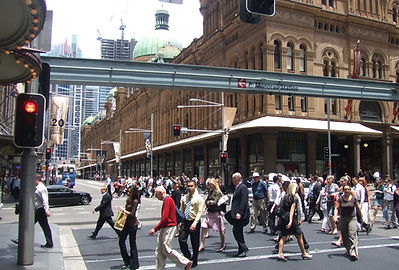
Culture Shock
Here is a brief introduction to some of these aspects, in the hopes that a little bit of mental preparation can go a long way towards helping you feel more confident before your departure to China






Communication
At the core of every society is communication — but the majority of Chinese people do not speak enough English for you to be able to get your point across, whether it be in a restaurant, at a tourist site or a taxi driver. The most English is spoken in Shanghai, and the least in the countryside.
On top of this, one thing that takes most getting used to is the volume and tone of conversation: keep in mind that most people speak louder in Chinese and may sound angry even though they are not. Therefore if you hear a 'fight' behind you, they may just be talking about how good the weather is. However, as in any country, a smile and hand symbols go a long long way to communicate without language.
Food
One of the great joys of any visit to China is experiencing China’s vast range of regional cuisines. But Chinese food is not necessarily the bland, accessible fare you enjoy in the West.
Expect surprises, from the ubiquitous delicacy that is chicken claw through to the range of insects sold on tourist thoroughfares to alarming-sounding dishes like “Rotten-Smelling Fish” or “Hejian Style Belt Leather Donkey Meat”.
Staring is acceptable
If you have pale skin, blonde hair or blue eyes, or if you are especially tall, also be prepared for a lot of staring. This is never meant in a bad way — it is pure curiosity, and generally if you smile or wave they will have looked away before you know it. In the bigger cities this is less of a problem, but if you go into the countryside do not be surprised if people come towards you, or make it very clear that they are talking about you, your skin, or your hair. A lot of people will also want to take pictures with you.
Personal Space & Subway
Different behaviors are most notable on the subway, and even after living here for a long time, rush hour can still cause one's blood to boil. In the Chinese culture, people are not taught to queue in the same way as in the West, and patience is also not a virtue on public transport.
On top of that, personal space has a different, or no, meaning in China. This means that taking the subway at rush hour is a challenge even for a saint, as people will try to get on before you get off, even if there is no space as you are standing in the middle of the door.
Traffic
Battery-powered scooters are a great way for the locals to get around China’s cities, and you’ll find them everywhere – even occasionally on the sidewalk. The approach is typically inaudible and they can travel surprisingly fast, so it’s good to keep an eye open.
When crossing a road at a marked crossing, be aware that vehicles are often cleared green to turn across that crossing at the same time that pedestrians cross on their own green light, so again keep an eye out.
China Takes Time
China can feel strange, vast, intimidating, with an unnerving blend of Western capitalism and the alien exotica of the Far East. Give China time, and you will learn to love her. Race around this vast nation in a week of frantic flights? You may never come back. And if you don’t, then – we promise — you are missing out.
(Source from:travelblog.viator.com)






